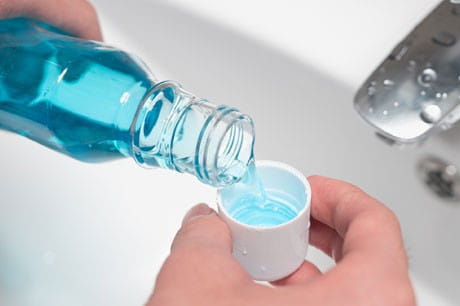Three sources of unexplained bad breath
It’s caused by more than just an aromatic lunch. Learn what’s behind your smelly breath.
Whether it’s coffee breath from your morning commute, forgetting to floss or a dry mouth, a bout of halitosis — or bad breath — can ruin your (and others’) day. Learn what else might be causing it and what you can do about it. Hint: it’s not just your food.
You are what you eat
“Digestion and the breakdown of food begin in your mouth. That means particles are left behind until you’ve digested them,” says Natalie Stinton, DMD, pediatric dentist at Geisinger. Most often, bad breath happens when you eat foods with a strong odor.
Some foods that commonly lead to bad breath include:
- Garlic
- Onions
- Spicy dishes
- Horseradish
- Coffee
- Dairy products
Bad breath can sneak up on you when you least expect it. So if you eat something overpowering now, your breath might not be affected until later.
Other causes of bad breath
“Bad breath can be caused by more than just a pungent meal or poor oral hygiene habits,” says Dr. Stinton. Here are a few common causes:
-
Gum disease.
. When plaque and bacteria build up around your gumline, they can result in gum disease. This leads to breath that smells less than fresh. -
Tooth shape.
Sometimes our teeth develop divots or crevices — perfect hiding spots for food particles. Even with a toothbrush, these spots may be hard to reach, leaving behind bits of trapped food. When the food breaks down, it can give off a strong odor. -
Chronic allergies.
That spring pollen does more than just make you sneeze. It can also lead to post-nasal drip. During post-nasal drip, excess mucus runs down the back of your throat. Dripping phlegm creates a haven for bacteria to multiply, leading to bad-smelling breath. -
Ketoacidosis.
This condition happens when a person with diabetes has dangerously low insulin levels. Their body begins using fat stores for energy. As the fat breaks down, it produces ketones, leaving behind an unpleasant odor. -
Gastroesophageal reflux disease (GERD).
Persistent acid reflux happens when stomach acid pushes up into the esophagus. This misplaced stomach acid may itself cause bad breath — or, because stomach acid erodes tooth enamel, it can lead to the crevices that trap food.
“If your halitosis isn’t going away, even with good oral hygiene, talk to your healthcare provider,” Dr. Stinton advises. “They can identify and treat the underlying cause.”
Brushing your teeth matters
Ready to begin your journey to better breath? Don’t forget to brush your teeth twice a day.
Dr. Stinton notes: “A common quip we say in dentistry is ‘Brush at night to keep your teeth — brush in the morning to keep your friends.’ That means, to prevent cavities, the most important time to brush is at bedtime. And to prevent halitosis, the most important time to brush is in the morning.”
Have concerns? Start with your dentist
If your gums are irritated or bleed when you brush, talk to your dentist. They can help identify potential causes. And they’ll work with you to find a solution. It may be as simple as replacing your toothbrush or starting a flossing regimen. Building a good oral hygiene routine can help your mouth feel fresh and clean all day long.
Next steps:
Mouthwash: Is it safe to use every day?
Get the scoop on sparkling water
Meet Natalie Stinton, DMD





